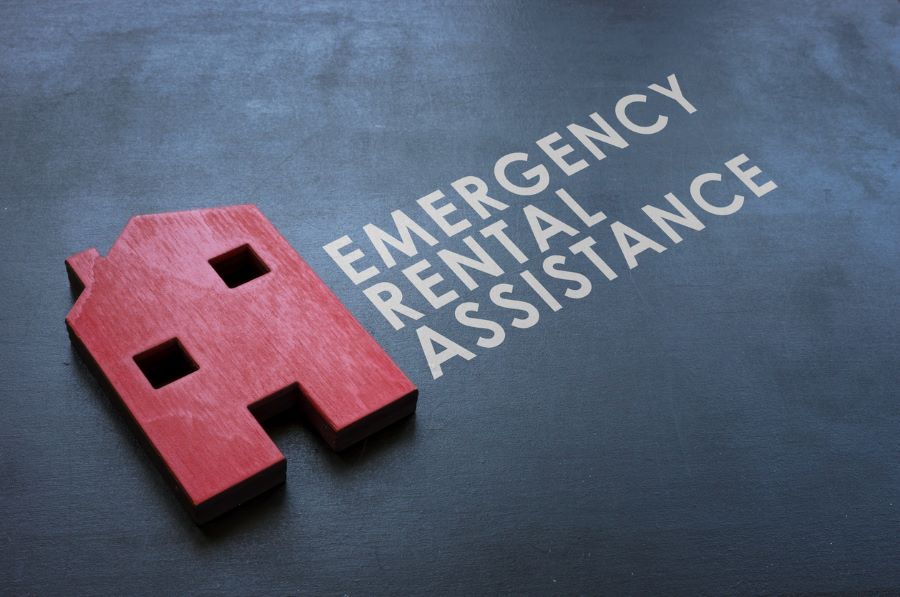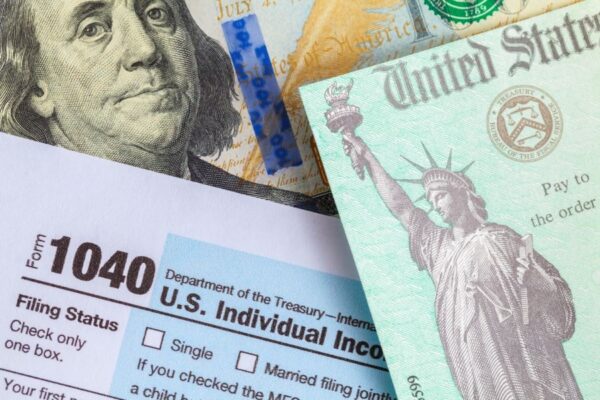Rental Assistance Help Is on the Way, but More Money Is Needed
This blog post was written by Lauren McGowan, United Way of King County Associate Vice President, Ending Homelessness and Poverty
Preventing homelessness is the socially just, most cost effective and least traumatic way of addressing the crisis. We recognize that homelessness nationwide is rooted in the lack of allocated funds that could have helped stem the crisis before it reached its current proportions. This is particularly true for Black, Indigenous and other people of color who are disproportionately impacted by evictions and homelessness— both because of historically racist systems and an overall lack of funding. One of the biggest challenges to homelessness, both locally and nationally, is that federal assistance reaches only one in four eligible families, purely because of funding limitations. It was true before the COVID-19 pandemic, and it is true today.
Over the last two years a surge in funding for Emergency Rental Assistance Programs, eviction moratoriums and other tenant protections have been a lifeline for tens of thousands of households in our region. Together, these interventions have helped prevent families impacted by the pandemic from facing the trauma and devastation of evictions and homelessness. As our region moves toward recovery —our work to prevent homelessness is just as important as ever. Today, more than 11,000 families have expressed a need for rental assistance and the average household needs over $11,000 in financial assistance. Our current resources will not come close to meeting the need. Failing to meet this need will prevent us from an equitable recovery and will increase our homelessness crisis. We can’t let that happen.
Big Changes Coming
The City of Seattle and King County recently announced big changes that will impact landlords and tenants.
Seattle Mayor Bruce Harrell announced last week that the latest eviction moratorium will be extended to the end of February and expire with no further extensions. We are disappointed to see the moratorium end while we are still in a COVID-19 public health emergency. But as the expiration nears, it is important to note that in 2020 the Seattle City Council unanimously approved a bill to give tenants a defense against rent-related evictions for six months after the moratorium ends. Also, the city does not allow large dwelling owners to evict tenants during winter months.
Mayor Harrell also directed the Office of Housing to distribute $25 million immediately to support renters and small landlords, complementing funding being allocated by King County officials. We at United Way of King County and our Home Base program partners will receive approximately $6 million of those funds to help people stay in their homes, but we hope that, unlike the moratorium, there will be more relief to come.
Since the pandemic began, United Way and our Home Base program partners have distributed more than $100 million in public and private rental assistance. Our Home Base partners include Urban League of Metropolitan Seattle, WellSpring Family Services, Solid Ground, Neighborhood House and Refugee Women’s Alliance.
Since the pandemic began, United Way and our Home Base program partners have distributed more than $100 million in public and private rental assistance.
Lauren McGowan, United Way Associate Vice President, Ending Homelessness and Poverty
King County also received an additional $66.5 million in rental assistance funding last week. United Way and our partners will help distribute these funds quickly and equitably. But that funding only scratches the surface of the need. As a result, the King County Department of Community and Human Services said on Monday that after serving more than 39,000 households it will pause new applications for Eviction Prevention and Rent Assistance Program (EPRAP) on Feb. 28— unfortunately the same day the Seattle eviction moratorium expires.
Leo Flor, director of King County Department of Community & Human Services, said in a statement that, based on available federal and state funding remaining, the department has more applications than it likely has funds to assist. Flor said ERPAP will reopen for applications if it receives additional funding, reiterating our case for more funds needed.
United Way believes that our region needs more than $150 million in additional emergency rental assistance funds as well as federal funding for the three out of four households who are income eligible for ongoing rental subsidies but don’t receive them. We know that homelessness is preventable if we invest at the scale of the need— it is time to step up to that need.
Here’s how you can help:
- Encourage tenants who need rental assistance to register before the end of February at https://www.uwkc.org/renthelp/.
- Join United Way of King County in urging the U.S. Department of the Treasury to allocate additional emergency rental assistance funding to King County—now. We don’t want to dismantle programs, take pauses or create further trauma and stress for families.
- Stay up to date with legislation in Olympia. The Washington State Legislature is in session until March 10. It has the opportunity right now to increase renter protections. Follow WA Low Income Housing Alliance for advocacy opportunities.
- Stay up to date with legislation in Washington, D.C. Congress still has the chance to pass Build Back Better and fund rental assistance, public housing and the Housing Trust Fund. Doing so will reduce poverty and keep low-income renters #HoUSed.





Comments
Steven
February 19, 2022I need rental assistance
Replies to Steven
United Way of King County
February 22, 2022Hi Steven, you can visit our Rental Assistance page for information on how to get help with rent.